Full Stack Development Internship Program
- 29k Enrolled Learners
- Weekend/Weekday
- Live Class
Java Frameworks are the bodies of pre-written code through which you are allowed to add your own code. But there are a lot of frameworks out there which have various applications. So, in this article, I’ll discuss the top 10 Java frameworks you should master.
Let’s look at the topics to be covered in this article:
Let’s get it started!
Frameworks are large bodies of pre-written code to which you add your own code in order to solve a problem. You make use of a framework by calling its methods, inheritance, and supplying callbacks, listeners, or other implementations of the patterns.
A framework will often dictate the structure of an application. Some frameworks even supply so much code that you have to do very little to write your application. This can be good or bad, depending on how easy it is to use. Frameworks are the substance of programming. You build on top of a good one, your program is solid and fast and comes together beautifully. You build on top of a bad one, your life is miserable, brutish, and short.
Get prepared for Java Interview Questions with our free resources.
🔥𝐄𝐝𝐮𝐫𝐞𝐤𝐚 𝐉𝐚𝐯𝐚 𝐂𝐨𝐮𝐫𝐬𝐞 𝐓𝐫𝐚𝐢𝐧𝐢𝐧𝐠: https://www.edureka.co/java-j2ee-training-course (Use code “𝐘𝐎𝐔𝐓𝐔𝐁𝐄𝟐𝟎”)
This Edureka Java Full Course will help you understand the various fundamentals of Java programm…
Now let’s understand the different frameworks.
1. Spring framework
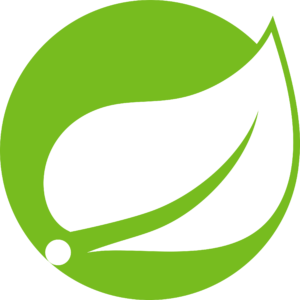
The core features of the Spring Framework can be used in developing any Java application. It is described as a complete modular framework. This framework can be used for all layer implementations of a real-time application. It can also be used for the development of a particular layer of a real-time application unlike the other frameworks, but with Spring we can develop all layers.
Spring and all the modules including Spring MVC, Spring Core, Spring Security, Spring ORM, etc are used in enterprise applications.
Now, let’s see where is this Spring framework used.
Uses:
Advantages
Now, talking about the major companies that use Spring framework for application development, we have,
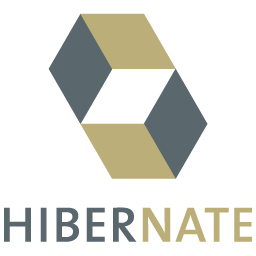 Hibernate ORM is a stable object-relational mapping framework for Java. It makes better communication possible between the Java programming language and relational database management systems (RDBMS).
Hibernate ORM is a stable object-relational mapping framework for Java. It makes better communication possible between the Java programming language and relational database management systems (RDBMS).
When you work with an object-oriented language like Java, you’ll encounter a problem called Object-Relational Impedance Mismatch also called Paradigm Mismatch. This is because OO languages and RDBMSs handle the data differently, which can lead to severe mismatch problems. So, this Hibernate provides you with a framework that overcomes the mismatch problems of Java.
Uses
Advantages
Now, talking about the major companies that use Hibernate framework for application development, we have,
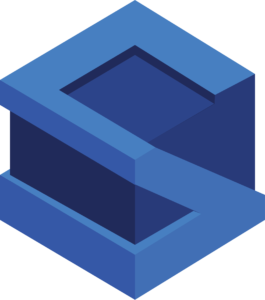 This is another enterprise-level framework, maintained by the Apache Software Foundation (ASF). This fully-featured Java web application framework that allows the developers to create an easy-to-maintain Java application. There are two versions. Struts 1 and Struts 2. Struts 2 is the combination of webwork framework of OpenSymphony and Struts 1. But all the companies prefer using Struts 2 because it is the upgraded version of Apache Struts.
This is another enterprise-level framework, maintained by the Apache Software Foundation (ASF). This fully-featured Java web application framework that allows the developers to create an easy-to-maintain Java application. There are two versions. Struts 1 and Struts 2. Struts 2 is the combination of webwork framework of OpenSymphony and Struts 1. But all the companies prefer using Struts 2 because it is the upgraded version of Apache Struts.
Uses:
Advantages:
Now, talking about the major companies that use Struts framework for application development, we have,
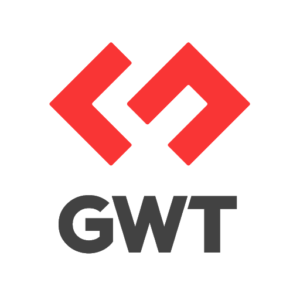 Google Web Toolkit (GWT) is a completely free, open-source framework that helps the developers to write client-side Java code and establish it as JavaScript. A lot of Google products are written using GWT such as AdSense, Google Wallet, and Blogger.
Google Web Toolkit (GWT) is a completely free, open-source framework that helps the developers to write client-side Java code and establish it as JavaScript. A lot of Google products are written using GWT such as AdSense, Google Wallet, and Blogger.
Using GWT, developers can easily code complex browser applications rapidly. It also allows you to develop and debug Ajax applications in Java. The awesome thing about GWT is that you can write complex browser-based applications without being an expert in front-end technologies like JavaScript optimization or responsive design.
Uses:
Advantages
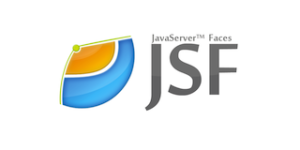 JavaServer Faces (JSF) is developed by Oracle for building user interfaces for Java-based web applications. It’s an official standard of the Java Community Process (JCP) initiative. It’s a pretty stable framework.
JavaServer Faces (JSF) is developed by Oracle for building user interfaces for Java-based web applications. It’s an official standard of the Java Community Process (JCP) initiative. It’s a pretty stable framework.
This is a component-based UI framework. JSF is based on the MVC software design pattern and has an architecture that totally defines a distinction between application logic and representation.
Uses:
Advantages
Grails
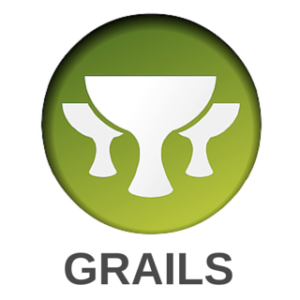 Grails is a dynamic framework, coined by the Groovy JVM programming language. It is an object-oriented language for the Java platform which intends to enhance developer productivity. The syntax is compatible with Java, and it’s compiled to JVM (Java Virtual Machine) bytecode. Grails works with Java technologies, including Java EE containers, Spring, SiteMesh, Quartz, and Hibernate.
Grails is a dynamic framework, coined by the Groovy JVM programming language. It is an object-oriented language for the Java platform which intends to enhance developer productivity. The syntax is compatible with Java, and it’s compiled to JVM (Java Virtual Machine) bytecode. Grails works with Java technologies, including Java EE containers, Spring, SiteMesh, Quartz, and Hibernate.
Uses:
Advantages
 Vaadin is a web application framework which focuses on UX accessibility. It provides you with a platform for streamlined Java development. Vaadin also allows you to build web applications of customizable components.
Vaadin is a web application framework which focuses on UX accessibility. It provides you with a platform for streamlined Java development. Vaadin also allows you to build web applications of customizable components.
Vaadin 10 approaches web app development in an entirely new way. It gives you direct access to the DOM from the Java Virtual Machine. With the new release, the Vaadin team split the previously monolithic framework into two parts. It also has a lightweight Java framework called Vaadin Flow that handles routing and server-client communication.
Uses:
Advantages
This is a simple and lightweight and high-performance Java framework used for providing a full-stack web framework. Blade is a lightweight MVC Framework that provides a restful routing interface, making the web API cleaner and much easier to understand and also helps in synchronizing data with the website.
Blade is based on Java 8, and the web server and template engine are built into the framework, too. It has a minimal impression it means the source code is less than 500kb in total.
Uses:
Advantages
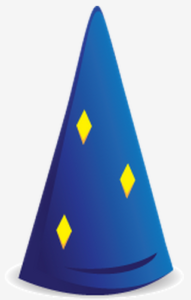 Dropwizard is a high-performance Java framework for rapid development of RESTful web services. It is especially suitable for creating Java microservices. The Dropwizard framework pulls together various well-established Java libraries in order to provide with a fast and distraction-free development platform.
Dropwizard is a high-performance Java framework for rapid development of RESTful web services. It is especially suitable for creating Java microservices. The Dropwizard framework pulls together various well-established Java libraries in order to provide with a fast and distraction-free development platform.
Dropwizard is a separate ecosystem that contains all the dependencies bundled into a single package.
Uses:
Operations-friendly Java framework
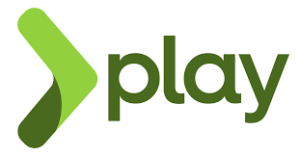 This is a reactive web and mobile framework for highly scalable Java applications. Play makes it possible to develop lightweight and web-friendly Java and Scala applications for desktop and mobile interfaces. It is often compared with powerful frameworks of other languages, like Ruby on Rails for Ruby, or Django for Python.
This is a reactive web and mobile framework for highly scalable Java applications. Play makes it possible to develop lightweight and web-friendly Java and Scala applications for desktop and mobile interfaces. It is often compared with powerful frameworks of other languages, like Ruby on Rails for Ruby, or Django for Python.
Play is a unique Java framework as it doesn’t rely on the Java EE standards. Instead, it intends to remove all the inconveniences of traditional Java web development like slow development cycles, a lot of configuration and many more. Built upon Akka Toolkit, Play framework truncates the creation of concurrent and distributed applications on the Java Virtual Machine.
Uses:
Advantages
This brings us to the end of this article where we have discussed the Top 10 best Java frameworks in use. Hope you are clear with all that has been shared with you in this tutorial. If you’re just beginning, then watch at this Java Tutorial to Understand the Fundamental Java Concepts.
Check out the Java Certification Training by Edureka, a trusted online learning company with a network of more than 250,000 satisfied learners spread across the globe. We are here to help you with every step on your journey to becoming a successful Java Developer; we come up with a curriculum that is designed for students and professionals who want to be a Java Developer.
Got a question for us? Please mention it in the comments section of this “Java frameworks ”article and we will get back to you as soon as possible.
 Thank you for registering Join Edureka Meetup community for 100+ Free Webinars each month JOIN MEETUP GROUP
Thank you for registering Join Edureka Meetup community for 100+ Free Webinars each month JOIN MEETUP GROUPedureka.co